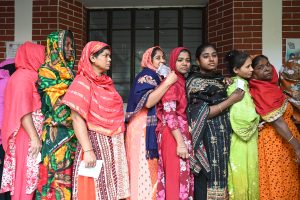Reforms have become a buzzword in post-Hasina Bangladesh.
The Muhammad Yunus-led interim government, which took charge of the country on August 8, 2024, days after the ouster of Prime Minister Sheikh Hasina, has been pushing for political, economic, and other reforms.
A little over a month after taking over the reins, Yunus announced the setting up of six commissions to reform the judiciary, election system, administration, police, Anti-Corruption Commission, and the constitution in order to prevent the recurrence of fascism or authoritarian rule in Bangladesh. “Reforming the police administration, public administration, judiciary, and Anti-Corruption Commission, along with the Election Commission, is essential for a free and fair election,” Yunus said.
Several advisers in the interim government have echoed Yunus to say that reforms must precede elections.
On December 25, Asif Mahmud, the interim government’s local government adviser, said: “[R]eforms are very important. So many people didn’t sacrifice their lives just for an election or vote.” A month earlier, Environment Adviser Syeda Rizwana Hasan said that the date of the next elections will be declared only after necessary reforms are carried out.
The message from a section of advisers in the interim government is that elections are a deterrent to reform, as if Bangladesh can only choose one: reform or election. The implication is that no reform is possible after the election.
This false dichotomy most likely stems from a lack of understanding of reforms and the wish on the part of the interim government to buy time for forming a new party led by students.
Bangladesh has always suffered from governance challenges. Hasina’s 15-year-long rule crippled all the key institutions. Besides, the Hasina regime often drafted and modified policies to benefit its cronies. As a result, almost all the key institutions and many policies are in dire need of reforms. The Yunus-led interim government responded by forming six commissions to guide future reforms.
As we wait for all the commissions to submit their recommendations, we must acknowledge that these reform ideas should not be a wishlist of solutions that can be imposed overnight, hindering democratic processes. Moreover, we also should not conflate improvisation with reformation.
For example, Bangladesh has been suffering from a sharp decline in both religious and cultural tolerance for around a decade. The recent incidents of religiously motivated mobs obstructing a women’s football tournament or open calls by the Islamist Jamaat-e-Islami’s student wing, Chhatra Shibir, not to celebrate Valentine’s Day are some examples. Transphobia is on the rise, too, with transphobic groups bullying the LGBTQ+ community and their allies for promoting equal rights for all.
The global community should be aware that this is not a new phenomenon. Targeted attacks were launched against bloggers and publishers with dissenting views when Sheikh Hasina had a firm grip on power. At the time, her son defended the government’s lack of action to protect these figures.
The Constitutional Reforms Commission has acknowledged the need to build a society based on pluralism and recommended including pluralism and equality in Bangladesh’s Constitution as fundamental principles. However, it will not convert all the elements of the nation’s society to a pluralistic one overnight.
Building a pluralistic society will require reforming the education system, intense negotiations with the different elements of society to build consensus, prioritizing resources to implement the relevant programs, tracking progress, and ensuring accountability throughout the process. More importantly, it’s a lengthy process that might require more than a decade.
Any serious public policy student will agree that building a pluralistic society is not the job of an interim government but of all the country’s political actors.
Elections, on the other hand, ensure accountability in governance. Despite their flaws, periodic credible elections ensure people’s voices are heard by the policymakers. Elections, thus, complement the reform process and do not hinder it.
Therefore, it is practically impossible for an interim government to implement a reform program and hold an election only after necessary reforms. The best it can do is to create a roadmap for the reform with data-based targets, precise deadlines, and strategies to achieve those targets in consultation with the political parties. Most importantly, considering every stakeholder’s opinion throughout the process is essential for sustaining these reforms.
If it is serious about these reforms, the interim government should build a national consensus, onboard all political actors and stakeholders regarding the reforms suggested by the respective commissions, and propose mechanisms to ensure accountability. It’s commendable that Yunus has already made some progress in this regard by forming a National Unity Commission.
Political parties need to acknowledge the need for reforms and endorse them through their manifestos, through which they can be held accountable.

































